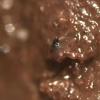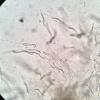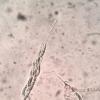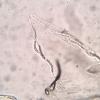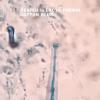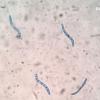
17-01-2026 19:35
Arnold BüschlenHallo, ich suche zu Cosmospora aurantiicola Lite

08-12-2025 17:37
 Lothar Krieglsteiner
Lothar Krieglsteiner
20.6.25, on branch of Abies infected and thickened

16-01-2026 00:45
Ethan CrensonHi all, On decorticated hardwood from a New York

10-01-2026 20:00
Tom SchrierHi all,We found picnidia on Protoparmeliopsis mur

13-01-2026 07:28
 Danny Newman
Danny Newman
Chlorociboria glauca on indet. decorticate logThe

15-01-2026 15:55
 Lothar Krieglsteiner
Lothar Krieglsteiner
this one is especially interesting for me because

13-01-2026 08:43
 Danny Newman
Danny Newman
Tricladium varicosporioides on indet. decorticate
Cercophora sp. on deer dung
Ethan Crenson,
29-03-2020 22:59
Hello all,
I hope everyone is safe and comfortable.
I am looking for help with a pyrenomycete growing embedded in deer dung which I collected in a New York City park on Feb. 8 and have been incubating since. I believe it is a Cercophora species, but I have very little experience with these things.
The perithecia are black and immersed in the dung, less than 1mm in diameter, with a protruding neck.
The asci are about 150-175 x 14-18µm, eight spored, with the spores clustered in a group at the center and a long "nose" featuring an apical ring at the tip. I heated the asci in cotton blue to test for the presence of a sub-apical globulus, but without a positive result. (I am not certain holding the slide for 30 seconds in a very hot toaster oven is the correct technique.)
Spores are vermiform, usually bent--a lot like Lasiosphaeria spores--hyaline, guttulate, with long mucilaginous projections. They measure (without the projections) 32-50 x 4µm. If this is Cercophora then I suppose the spores are stubbornly in their "hyaline state" not developing a swollen brown cell. Perhaps this needs more time to mature. In such a state is it possible to reach an identification as to species?
Thank you in advance for your help!
Ethan
Michel Delpont,
30-03-2020 09:34

Re : Cercophora sp. on deer dung
Hello Ethan!
Your photos lack precision to be able to pronounce with certainty; we do not distinguish the presence of a globule at the top of the asci, nor if it is warty or not. The size of the spores is close to C.anisura, but of course without any affirmation.
Michel.


